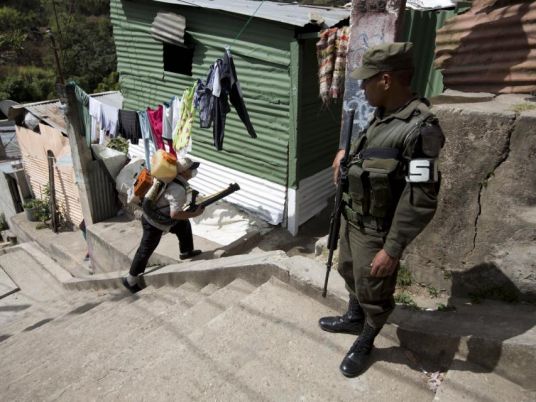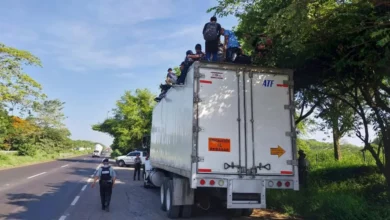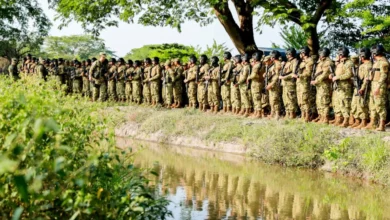
For health workers battling Zika across much of Central America, the immediate menace is not the mosquitoes that transmit the virus. It's the gangsters who control the streets, and sometimes threaten their lives.
Armed and well-organized street gangs known as maras exert near-total control over entire neighborhoods, using sentries to track everyone who comes and goes. In some cases, they deny access to health crews they suspect of working with police or a rival gang.
In 2014, an emergency medical technician accompanying a fumigation team in greater San Salvador was shot dead by mara members after they lifted his shirt and, according to local media reports, found he had a tattoo from a rival gang. Similar incidents have played out in neighboring Honduras and in Guatemala, where fumigators are chased by thugs, assaulted or charged a small tax for access.
"The state is absent" in such areas, said Carlos Carcach, a criminologist with the Superior School of Economics and Business in El Salvador. "The state is being replaced by the gang."
More than 7,000 suspected cases of Zika have been identified in El Salvador, where government officials have advised women to put off pregnancies for two years due to severe birth defects tentatively linked to the virus. The country has also launched a campaign against the Aedes aegypti mosquito, relying on aggressive fumigation and the removal of standing water and refuse where its larvae can breed.
But El Salvador, a country of just 6 million people, recorded more than 700 murders in January and had a homicide rate of 103 per 100,000 inhabitants last year, believed to be the highest of any country not in open war.
That's the environment in which government health workers struggle to contain Zika.
To get into Cuscatancingo, on San Salvador's outskirts, a reporter met a local resident outside town and traveled there in his car, which would not raise the gangs' suspicions.
Approaching the Villa Mariona government health clinic, the driver rolled down the vehicle's windows so a group of young Mara Salvatrucha gangsters in low-hanging jeans, gelled hair and plaid shirts could see who was inside. One asked what was going on, and whether the reporter had cameras. When a police foot patrol came up the street, a teen shouted "Policia!" into his radio and the youths ran.
Several years ago, the clinic was forced to shut down for several months because staff members were being extorted, according to Nelson Mejia, Villa Mariona's sanitation coordinator. He and the then-director met with gang members to explain why it was important that they work there. Gang members asked that their people get prompt treatment at the facility then agreed to allow operations to resume under a wary truce. But there have been more incidents.
Gang members beat up and took away a man working on a local water project for the health ministry. Once, when a clinic employee was going door-to-door for a health project, a gang member called to warn that he should leave immediately because he was suspected of being a cop. Another worker on a fumigation mission left after being intimidated by gangsters.
"When this clinic reopened, it reopened with fear," Mejia said.
Whenever a suspected case of Zika is identified, the Villa Mariona clinic tries to send teams into the area to look for others with fever and to destroy mosquito breeding areas. Mejia said workers from another clinic in Cuscatancingo have been denied entry at times.
Eduardo Espinoza, vice minister of health, said such incidents are sporadic. "We haven't had any significant trouble except in some areas, specifically in the metropolitan area," Espinoza said.
In Guatemala, fumigators planned to go into one Guatemala City neighborhood last week but locals warned it was too dangerous, said Sergio Mendez, fumigation coordinator for the health ministry.
"We don't ask for help from the police or the army to enter an area, because later they go and carry out raids," Mendez said. "And we have to go back. The people think we reported them."
Gangs can also hamper the fight against Zika and other public health efforts in less-direct ways.
Fear of the maras leads many residents to refuse to answer the door or let health workers inside. Of the nine suspected Zika cases in the area served by the Villa Mariona clinic, only five have been identified because people refuse to share relatives' phone numbers or addresses. It's common for people to suddenly and secretly relocate to escape gang threats, making it difficult to do proper follow-up and contain the epidemic.
Mejia said fear also contributes to the root causes of the epidemic.
For example, when a water pipe breaks in a gang-controlled neighborhood, the government responds slowly because sending a repair crew is dangerous, he said. That leads to unreliable service in the area, prompting locals to stockpile water in barrels perfect for mosquito breeding.
Resident Cesiah Estel Vargas said the three huge metal drums of water on her clean-swept patio are for when the water stops flowing. Two were covered, but one was open and filled to the brim. She said that one is used to flush the toilet and usually gets refilled daily, so she doesn't worry about mosquitoes.
Across the way, Raul Rivera swatted at mosquitoes swarming inside his tidy living room. In a smaller room just off it sat a large concrete water tank, where even more of the bugs flitted about.
Rivera got Zika two months ago and missed work for a week. Last year, his mother and son came down with chikungunya, which is transmitted by the same mosquito. He said he knows the water in his house is the problem, but it had been months since health workers distributed the larvicide for the water tanks.
He seems resigned to disease.
"It's nothing new," he said.




